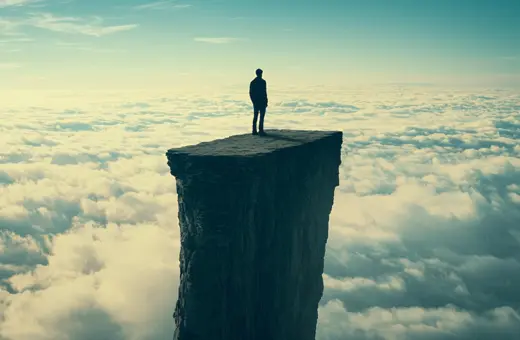Loneliness has increased over lockdown. However, in our technological, hyper-social world, we are never truly alone in the modern world. To gain the treasures of solitude we must become more comfortable with ourselves and less reliant on distractions that keep us from forming a strong relationship with ourselves. Having a strong self-relationship will aid us as lockdown ends and we return to the company of other people, writes Lars Svendsen.
The first lockdown did not seem to have much effect at all on the prevalence of loneliness. If anything, the numbers were slightly lower in several countries than before the lockdown. However, as the first lockdown was followed by further ones, and the whole process dragged out, numbers started to rise.
Humans are social animals, and one would expect that many would suffer from being cut off from their normal social interactions for so long. Anyone who cares about others will experience loneliness from time to time. Loneliness can be described as social hunger, as a feeling of discomfort of pain that informs us that our need for attachment to others is not satisfied. Loneliness detaches you from others in a meaningful way, but it also detaches you from yourself, from important sides of yourself that can only exist and develop through your ties to other people.
Human life is such that there is no guarantee our need for connection will be satisfied. Some people are infrequently lonely, some almost never, while others are lonely most of the time. There are people who spend most of their time alone without being much plagued by loneliness, and others who feel extraordinarily lonely, though they are surrounded by friends and family most of the time. We all know the emotion of loneliness, yet we do not all experience it in the same way. Only among a minority is loneliness usually sustained as a serious problem for a long time. The pandemic has caused far more people than normal to have to endure this state.
Loneliness detaches you from others in a meaningful way, but it also detaches you from yourself, from important sides of yourself that can only exist and develop through your ties to other people.
There are different kinds of loneliness. The most common variety, transient loneliness, need not be of any concern here. It can overtake us at any moment, whether we are at a crowded party or home alone, but it simply comes and goes without making much of a mark. Situational loneliness is caused by life changes, such as when a close friend or a family member dies, a romantic relationship ends, children move away from home, etc. Chronic loneliness is a condition in which the subject experiences constant pain on account of insufficient attachment to others. For the chronics, their social surroundings appear to have little effect on their loneliness. They may be alone most of the time or surrounded by nice friends, family and colleagues, but their feeling of loneliness seems to be more or less unaffected by this. The people in this category felt lonely before the pandemic, during the pandemic and they will feel lonely after the pandemic. It should be noted, however, that those who suffered most acutely from loneliness before the pandemic actually reported an improvement in their quality of life during the lockdown. The reason for this is unclear, but it might be the case that they felt some relief because so many others were afflicted in a way similar to themselves.



















Join the conversation